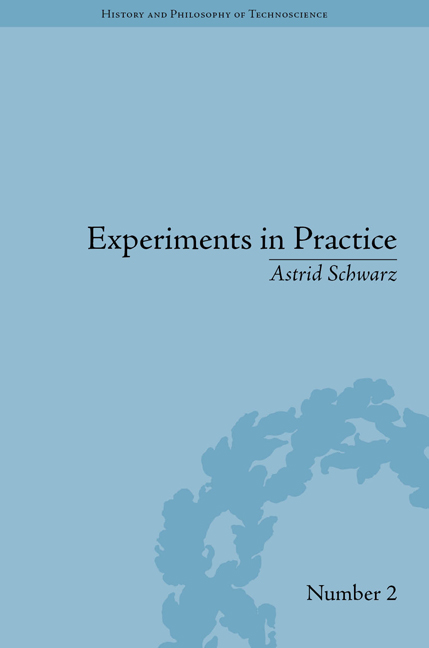Book contents
- Frontmatter
- CONTENTS
- List of Figures
- Introduction: Towards an Experimental Mode in Science, Society and Philosophy
- Part I Questioning the Scientific Method
- 1 (De)Liberating the Experiment: A Different History of the Philosophy of Science
- 2 The Philosophy of Inductive Sciences
- 3 Whewell's Innovation through Renewal
- Part II Different Modes of Experimentation
- Part III Tirelessly Tinkering with Unruly Conditions
- Part IV Practising Experiments in a World of Environmental Concerns
- Conclusion: Experiments in Practice – the Work of Experiments
- Notes
- Works Cited
- Index
1 - (De)Liberating the Experiment: A Different History of the Philosophy of Science
from Part I - Questioning the Scientific Method
- Frontmatter
- CONTENTS
- List of Figures
- Introduction: Towards an Experimental Mode in Science, Society and Philosophy
- Part I Questioning the Scientific Method
- 1 (De)Liberating the Experiment: A Different History of the Philosophy of Science
- 2 The Philosophy of Inductive Sciences
- 3 Whewell's Innovation through Renewal
- Part II Different Modes of Experimentation
- Part III Tirelessly Tinkering with Unruly Conditions
- Part IV Practising Experiments in a World of Environmental Concerns
- Conclusion: Experiments in Practice – the Work of Experiments
- Notes
- Works Cited
- Index
Summary
Bacons Organon soll eigentlich ein heuristisches Hebzeug sein. (Bacon's Organon should really be a heuristic hoist.)
Georg Christoph LichtenbergIn the 1980s, philosopher Ian Hacking advocated a rethinking of the role of hands and eyes in the construction of scientific knowledge. His argument for the importance of experimentation was accompanied by the hope that it might launch a ‘back-to-Bacon movement, in which we attend more seriously to experimental science’. Now, some three decades later, one has to acknowledge that Hacking has been tremendously successful, even if he was not the first philosopher of science to point to the importance of the Baconian conception of experience through experimentation, which has been referred to sympathetically and critically by Karl Popper, Thomas S. Kuhn and Paul Feyerabend, for example. However, nowadays Francis Bacon is undoubtedly the historical witness most often called upon when describing recent transformations in the production of knowledge and its epistemological and ontological status. Witness, for instance, the expression ‘the current state of human affairs in the wake of our collective Baconian transformation’, or the writing of another author who reads Bacon as a precursor to Latour. The renewed interest in Bacon is one of the symptoms of contemporary postmodernism, argues Paul Forman, where ends regain primacy and had been ascribed to the scientific methods ‘always and everywhere’ prior to the Enlightenment, with its high valuation of science, being ‘modernity's prime exemplar of progress through reliance upon a proper means’.
- Type
- Chapter
- Information
- Experiments in Practice , pp. 9 - 26Publisher: Pickering & ChattoFirst published in: 2014

